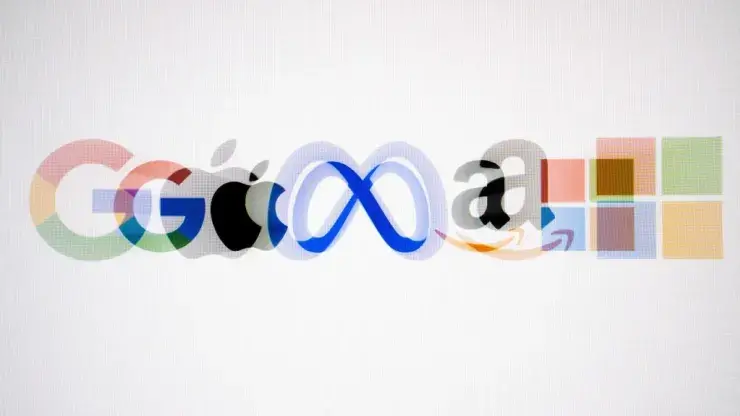Over the past year, ChatGPT has made waves in the digital marketing industry by showcasing its human-like abilities in responding to user queries. This breakthrough in generative artificial intelligence has captivated the attention of digital marketing veteran Shane Rasnak, who recognized the transformative potential of AI in his field. Tasks that used to take Rasnak 30 minutes to an hour can now be completed in just 15 minutes, thanks to the efficiency of generative AI.
Rasnak’s experimentation doesn’t stop there. He has also delved into the realm of generative AI tools like Midjourney, which can turn text prompts into captivating visuals for Facebook ads. This software is particularly advantageous for individuals without a graphic design background, offering assistance alongside popular graphic-editing tools such as Canva and Adobe Photoshop.
While generative AI is still in its infancy, Rasnak believes it has the potential to revolutionize the digital advertising industry much like the advent of social media did. Just as platforms like Facebook and Twitter enabled advertisers to target consumers based on their preferences and interests, generative AI now empowers them to create tailored messaging and visuals to craft and refine campaigns.
The industry giants—Meta, Alphabet, and Amazon—have all recognized the potential of generative AI and are betting on its future significance. They have recently introduced products or announced plans to develop various tools that simplify the process of creating messages, images, and videos for their respective advertising platforms. Although these products are still undergoing trial phases and have faced criticism for rushed releases, ad experts assert that generative AI represents the logical next step in targeted online advertising.
Cristina Lawrence, the executive vice president of consumer and content experience at Razorfish, a digital marketing agency, believes that generative AI will have a seismic impact on digital advertising. It offers unprecedented output quality and volume while enabling unparalleled personalization, revolutionizing how campaigns are marketed.
Meta, in particular, has made strides in this domain. The company introduced its AI Sandbox testing suite, allowing companies to easily employ generative AI software to create background images and experiment with different advertising copy. Additionally, Meta updated its Meta Advantage service, which employs machine learning to enhance the efficiency of ads across its social apps. Meta positions the Advantage suite as a solution for improved campaign performance following Apple’s iOS privacy update in 2021, which restricted user tracking capabilities.
As these offerings continue to improve, companies will be able to target Facebook users in specific locations with AI-generated graphics and personalized ad text. For example, a bicycle company could showcase AI-generated visuals of people cycling through desert canyons to Facebook users in Utah, while users in San Francisco might see images of cyclists cruising over the Golden Gate Bridge. The ad text could be tailored based on the individual’s age and interests, resulting in personalization at scale.
Meta’s Advantage service has gained traction among retailers, who have utilized it for automated shopping ads. Data shared by online marketing firm Varos indicates that in May 2023, approximately 2,100 companies allocated $47 million (27.5% of their combined monthly Meta advertising budgets) to Advantage+. The previous month, these companies directed 26.6% of their budget ($44.9 million) to Advantage+.
Yarden Shaked, CEO of Varos, acknowledges that Facebook is making progress in persuading advertisers to rely on its automated ad technology. However, he remains skeptical of the creative aspect, citing concerns about Meta’s nascent generative AI tools for advertisers.
Challenges still impede the immediate impact of generative AI on the online advertising industry, according to Jay Pattisall, an analyst at Forrester. One major hurdle is brand safety, as companies are reluctant to outsource campaigns to generative AI due to the potential for biased or offensive content. Earlier this year, Bloomberg News discovered that AI-generated imagery from the Stable Diffusion tool exhibited stereotypes by associating darker skin tones with certain job prompts.
Another issue lies in the legal implications of using generative AI powered by models trained on scraped internet data. Platforms like Reddit, Twitter, and Stack Overflow have announced plans to charge AI companies for using their data.
Scott McKelvey, a marketing writer, and consultant, highlights other limitations regarding the quality of output. Based on his experience with ChatGPT, he argues that the technology fails to generate long-form content that companies find useful as a promotional copy. Generic content lacking a distinctive voice or point of view is not sufficient for effective marketing.
Regarding these concerns, an OpenAI spokesperson declined to comment, while a spokesperson for Meta stated that the company has conducted extensive research to mitigate bias in its AI systems. Meta also offers brand-safety tools to provide advertisers with more control over ad placement and removes any AI-generated content that violates its rules.
Stacy Reed, an online advertising and Facebook ads consultant has already incorporated generative AI into her daily work. She utilizes the software to generate variations of Facebook advertising headlines and short copy, finding it valuable in an era where user tracking is more challenging. Reed considers generative AI a good starting point, but emphasizes the importance for companies and marketers to refine their brand messaging strategies and avoid relying solely on generic content. Generative AI lacks the human strategist’s ability to understand audience preferences and execute comprehensive campaigns across multiple platforms.
Currently, major ad agencies and large companies are primarily using generative AI for pilot projects while awaiting further advancements in the technology. Earlier this year, Mint Mobile aired an ad featuring Ryan Reynolds reading a script generated by ChatGPT. Reynolds described the AI-created text as mildly terrifying yet compelling.
Overall, generative AI holds immense potential for the digital advertising industry. While there are challenges to overcome in terms of brand safety, legal issues, and output quality, industry leaders are investing in the development of generative AI tools. As the technology continues to evolve, it is expected to revolutionize how targeted online advertising is conducted, offering personalized and visually appealing campaigns to captivate audiences.





